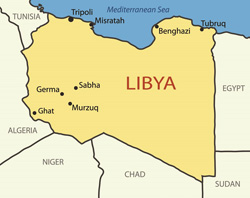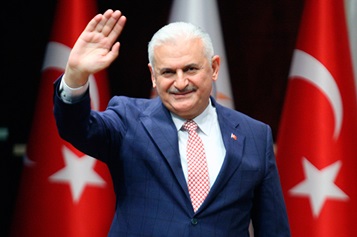The Black Sea-Caspian Region in Post-Conflict Energy Security Cooperation Scenarios[Over]  By Elkhan Nuriyev, BREC Global Energy Associate, EGF Affiliated Expert By Elkhan Nuriyev, BREC Global Energy Associate, EGF Affiliated Expert
This opinion piece applies post-conflict scenario planning to the future of the regional energy security cooperation in the Black Sea-Caspian basin and describes collaborative steps that could be taken by all relevant players to think more deeply about promoting the integration of energy markets in this part of the world.
Notwithstanding the most acute unpredictability of the new societies in Eastern Europe, the South Caucasus and Central Asia in the 1990s, the young states simultaneously faced the need for intense capital investments in their energy sectors that could drive economic growth. Since then, both the Black Sea and the Caspian basin alike have become crossroads for increased commerce and economic development as the old Silk Road is revived. READ MORE
- Monday, 2 October 2017, 21:25
Who Will Pay for Making America Great Again?[Over]
 Sergey Korol, Sergey Korol,
European Geopolitical Forum
American politics, in general, and its energy version in particular, resemble a chess game but according to the rules of American football.
The US plans to become a leading player in the world energy market do not coincide with the interests of other major players, including OPEC countries and Russia. READ MORE
- Friday, 18 August 2017, 05:29
The South-West Transport Corridor Project and the Geopolitical Reshaping of the South Caucasus[Over]
 By Fuad Shahbazov, Expert-advisor, Center for Strategic Studies under the President of the Azerbaijan Republic By Fuad Shahbazov, Expert-advisor, Center for Strategic Studies under the President of the Azerbaijan Republic
Baku hosted the first joint gathering of the heads of the railway administrations of Iran, Azerbaijan, Georgia, Ukraine and Poland, on June 19. The meeting was dedicated to the newly-launched “South-West Transport Corridor,” which links into the broader Trans-Caspian International Route project launched in 2016. READ MORE
- Thursday, 20 July 2017, 13:21
Adjusting the EU's Geopolitical Posture in the Eastern Neighborhood[Over]  by George Vlad Niculescu, Head of Research, the European Geopolitical Forum
by George Vlad Niculescu, Head of Research, the European Geopolitical Forum
How could the EU best deal with a revisionist Russia who challenged the post-Cold War European security order, most notably in Ukraine and in Georgia? We should probably start from considering EU’s current strategic options in its Eastern Neighbourhood. The key question here is what should be the EU’s objective in this contested region? Is it to find a compromise solution with Moscow on how to fix the broken security order? Or is it to defend its shared values in the Eastern Neighbourhood, and to eventually annihilate the Russian power and influence? READ MORE
- Tuesday, 7 March 2017, 10:10
New Russian Order in the Middle East?[Over]  By Dr.Cyril Widdershoven, EGF Affiliated Expert, Military geopolitics By Dr.Cyril Widdershoven, EGF Affiliated Expert, Military geopolitics
Military environment in the Mediterranean is changing according to the chess plans of Russia’s leader Vladimir Putin. After bridging the immense opposition Russia was encountering during and after the demise of the USSR, a new Russian influence sphere has been built up of unforeseen order. It how the situation is perceived by Western leaders and military experts.
Re-emergence of Russian military assets and bilateral and multilateral relations with Arab countries is now being substantiated by the set-up of new military alliances in and around the Mediterranean. READ MORE
Any Optimism in the Chinese ‘Rooster Year'?[Over]  Mehmet Ogutcu
Mehmet Ogutcu
EGF Affiliated Expert
LONDON - As the world is preparing to leave 2016 behind as a year fraught with political surprises, financial crises and market volatility, governments and businesses including those in Turkey have started to set their eyes on what the next 12 months have in store for them politically and economically.
Clearly, global risks are more elevated and more interconnected than we have ever seen before and demand a proactive and integrated response to address potential impacts. To refresh your memory, since the end of the Bretton Woods order in the 1970s, there have been serious financial crises every seven years over the past 40 years: 1987, 1997, 2007. If you ask me whether the global crisis which has been brewing in the last few years could erupt in 2017, my answer would be yes. READ MORE
- Tuesday, 7 March 2017, 10:09
Turkey will reconcile with Syria[Over]

Prime Minister Binali Yildirim said that Turkey is heading to restore relations with Damascus. "We will expand our circle of friends. We have already begun to do so. We normalized our relations with Israel and Russia, and now, I am sure, we will do the same with Syria. We need it to be done", - said Yildirim, speaking on Turkish television. READ MORE
- Tuesday, 7 March 2017, 10:09
Launch of a new EGF monthly: the Geopolitical Trends[Over]  George Vlad Niculescu,
George Vlad Niculescu,
Head of Research, the European Geopolitical Forum
EGF is excited to announce the launch of a new monthly information product, the Geopolitical Trends. Written by our long-time Head of Research, George Vlad Niculescu, it aims to fill a gap in complex, multi-optional coverage of key geopolitical trends in Eurasia. Each issue will delve deeply into current events, such as recent Russian/American actions in Syria and implications for the ongoing conflict in Ukraine.
For year 2016:
Please click here for Issue 1
Please click here for Issue 2
For year 2015:
Please click here for Issue 1
Please click here for Issue 2
- Tuesday, 7 March 2017, 10:08
1
2
3
4
5
6
7
8
9
10
11
...
13
|
|